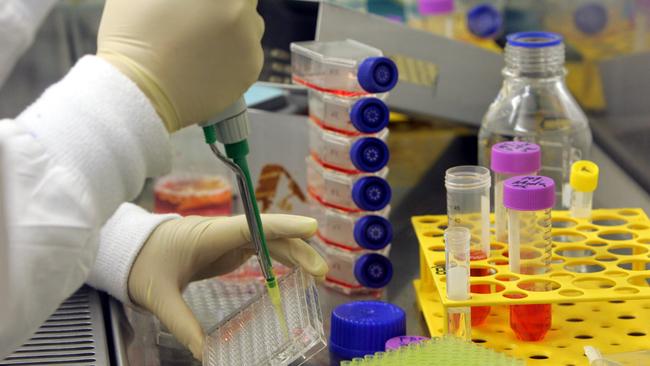Monash University research solves decades long human cells mystery
Melbourne researchers have made a groundbreaking discovery in blood cancer that may lead to the development of successful treatments for deadly multiple myeloma.
Victoria
Don't miss out on the headlines from Victoria. Followed categories will be added to My News.
Better blood cancer treatments are a step closer after Melbourne researchers solved a decades long mystery about human cells in a major breakthrough.
The team, led by Professor Nicholas Huntington from Monash University’s Biomedicine Discovery Institute, worked for eight years to investigate why targeting a key protein called Ikaros leads to the death of cancer cells.
Professor Huntington said current treatments for multiple myeloma - a deadly blood cancer with no cure - target Ikaros, and he hoped the discovery would help researchers develop better treatments.
“We’re always looking for better treatments for multiple myeloma,” he said.
Professor Huntington said the study, published in the esteemed journal Nature Immunology, found Ikaros activated the AP-1 family of genes, that are essential for human life, explaining why multiple myeloma treatments that degrade Ikaros work.

“By degrading Ikaros you no longer have the expression of all these important AP-1 factors that keep us alive,” he said.
“The cancer cells will die because they don’t have these AP-1 factors being expressed.”
But Professor Huntington said degrading Ikaros also resulted in the death of healthy cells and could have negative side effects.
“At the moment, our therapies target Ikaros but that can have some off target effects and might not be highly efficacious,” he said.
“By understanding what are the key proteins that Ikaros is regulating, you might be able to make drugs against these key proteins [AP-1] that are more specific or more targeted for blood cancer cell death rather than just cell death in general.”
Professor Huntington said it was “exciting” that the discovery also had the potential to provide insight into whether the current drugs could be used to treat other blood cancers with a high dependency on AP-1 factors.

He said the research may also assist with the development and improvement of immune cell therapy, which is another treatment for blood cancer.
In immune cell therapy, a blood cancer patient’s immune cells are taken out, genetically engineered to detect and kill cancer cells, then put back into the patient.
Professor Huntington said people had been studying AP-1 genes for 30 years and before the study, there was very little information on what activated them.
Researchers from Monash University, the Walter and Eliza Hall Institute, the Doherty Institute and the Peter MacCallum Cancer Centre collaborated on the research, and Professor Huntington said their discovery was “a great example of the vibrant research community in Melbourne.”




